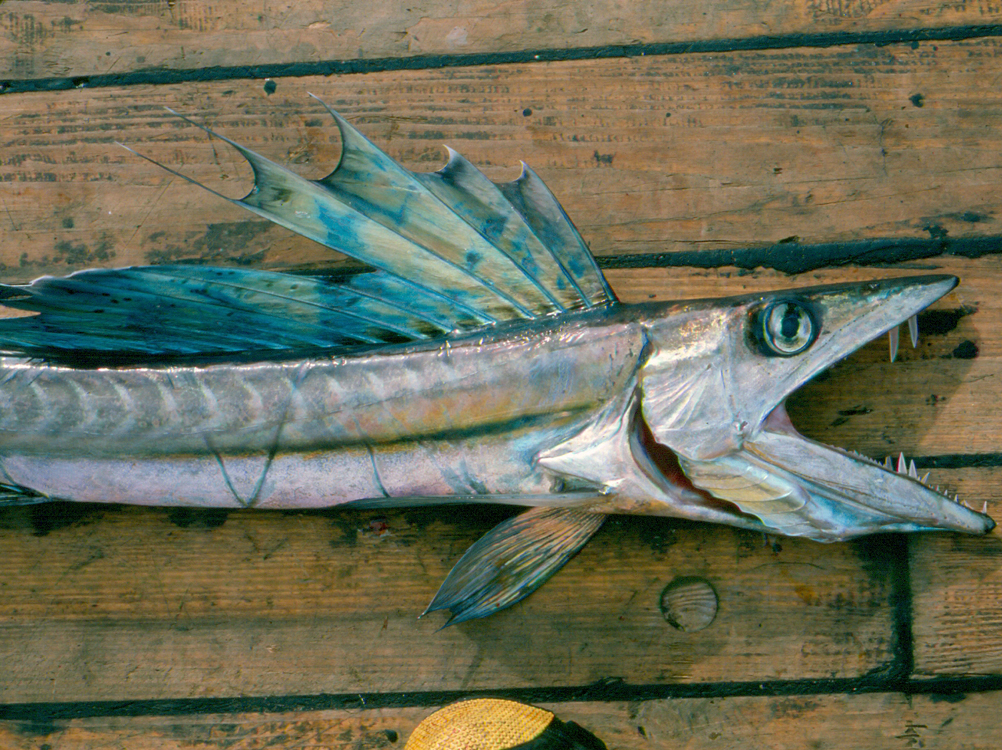Scary Fanged Cannibal Fish Washes Ashore ... Alive!

Get the world’s most fascinating discoveries delivered straight to your inbox.
You are now subscribed
Your newsletter sign-up was successful
Want to add more newsletters?

Delivered Daily
Daily Newsletter
Sign up for the latest discoveries, groundbreaking research and fascinating breakthroughs that impact you and the wider world direct to your inbox.

Once a week
Life's Little Mysteries
Feed your curiosity with an exclusive mystery every week, solved with science and delivered direct to your inbox before it's seen anywhere else.

Once a week
How It Works
Sign up to our free science & technology newsletter for your weekly fix of fascinating articles, quick quizzes, amazing images, and more

Delivered daily
Space.com Newsletter
Breaking space news, the latest updates on rocket launches, skywatching events and more!

Once a month
Watch This Space
Sign up to our monthly entertainment newsletter to keep up with all our coverage of the latest sci-fi and space movies, tv shows, games and books.

Once a week
Night Sky This Week
Discover this week's must-see night sky events, moon phases, and stunning astrophotos. Sign up for our skywatching newsletter and explore the universe with us!
Join the club
Get full access to premium articles, exclusive features and a growing list of member rewards.
Visitors to Jennette's Pier in Nags Head, North Carolina, were shocked last week when an evil-looking fanged fish washed up alive on the shore.
The monstrous fish has been identified as a long-snouted lancetfish (Alepisaurus ferox), a nocturnal predator that's rarely seen near shore. The fish are known not only by their large fangs and tall dorsal fin, but also by their habit of eating their own species.
Because it's a relatively uncommon fish that inhabits the open ocean, little is known about its life cycle. In adolescence, lancetfish are hermaphrodites (having both male and female sex organs), though there's no evidence of adult hermaphrodites. [See Photos of Lancetfish and other Freaky-Looking Fish]
Lancetfish are also known as handsaw fish, because of their prominent, jagged dorsal fin, which runs almost the entire length of their back. The fish have no scales — their scientific name, Alepisaurus, translates as "scaleless lizard" — and their skin is instead covered with pores.
They can grow to be as long as 6.5 feet (2 meters) in length. Lancetfish generally feed at night, and in addition to dining on other lancetfish, they also eat crustaceans, squid and smaller species of fish.
Lancetfish are in turn preyed upon by seals, sharks and other large fish, including tuna. They're not considered a good fish for human consumption, because their muscles contain large amounts of water, making their flesh somewhat mushy. Fishermen, in fact, consider the lancetfish a "trash" fish that sometimes takes bait intended for more profitable catches such as tuna.
The fact that their muscles have a high water content makes it unlikely that the lancetfish can move quickly or pursue other prey, so scientists speculate the lancetfish is an ambush predator — it probably uses its big dorsal fin to accelerate in short bursts to overcome prey.
Get the world’s most fascinating discoveries delivered straight to your inbox.
The fish are found in open waters throughout tropical and subtropical oceans, though they've been known to travel as far north as Greenland and Iceland.
The lancetfish found in North Carolina was alive when it washed up on shore, but when it was carried back out into deeper water it washed ashore again, indicating it may have been sick, according to Nature World News.
Follow Marc Lallanilla on Twitter and Google+. Follow us @livescience, Facebook & Google+. Original article on Live Science.

 Live Science Plus
Live Science Plus










